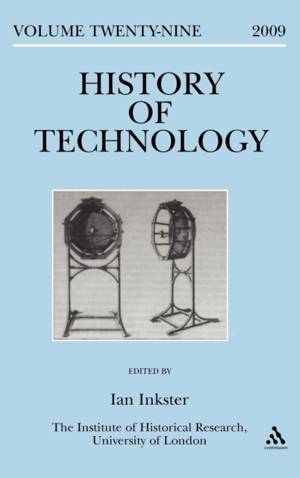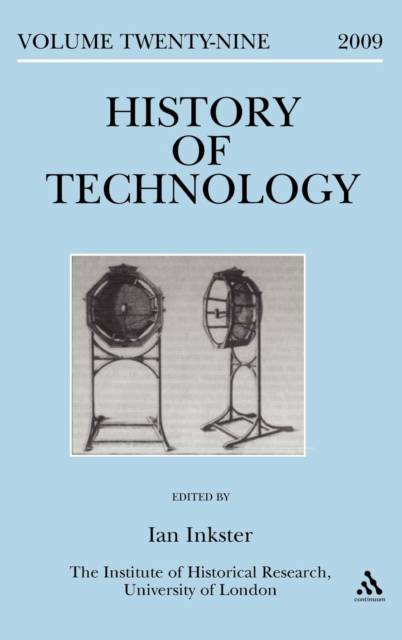
- Afhalen na 1 uur in een winkel met voorraad
- Gratis thuislevering in België vanaf € 30
- Ruim aanbod met 7 miljoen producten
- Afhalen na 1 uur in een winkel met voorraad
- Gratis thuislevering in België vanaf € 30
- Ruim aanbod met 7 miljoen producten
Zoeken
History of Technology Volume 29
€ 449,45
+ 898 punten
Omschrijving
The common question from the western point of view is of the sort; why did China lose its early leadership of productive technologies to Europe during the early modern period? Answers to this seemingly clear enquiry vary from general cultural inwardness to the interferences of imperial governance. This collection surveys such theories but alters the issue by raising the notion that Chinese technologies did not so much fail as move along a path different from that of Europe.
Our second collection on the Mindful Hand, also shifts common ground by querying and modifying common views of the links between knowledge and technique in early-modern European development. Scientific or related knowledge was not brought to technique as a socio-cultural gift from an educated elite to the working man. Rather, educated gents, practitioners, instrument makers, craftsfolk and technicians of all kinds intermingled both socially and in terms of the recognition of technical problems as well as in the assemblage of the mental, commercial and cognitive resources required to pursue innovative production projects.Specificaties
Betrokkenen
- Uitgeverij:
Inhoud
- Aantal bladzijden:
- 232
- Taal:
- Engels
- Reeks:
- Reeksnummer:
- nr. 29
Eigenschappen
- Productcode (EAN):
- 9781441136114
- Verschijningsdatum:
- 23/12/2009
- Uitvoering:
- Hardcover
- Formaat:
- Genaaid
- Afmetingen:
- 156 mm x 234 mm
- Gewicht:
- 498 g

Alleen bij Standaard Boekhandel
+ 898 punten op je klantenkaart van Standaard Boekhandel
Beoordelingen
We publiceren alleen reviews die voldoen aan de voorwaarden voor reviews. Bekijk onze voorwaarden voor reviews.






